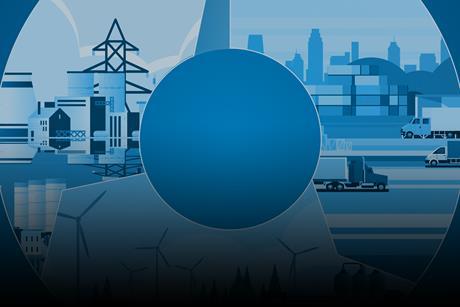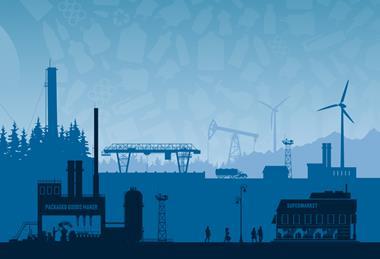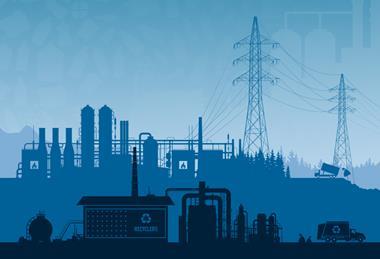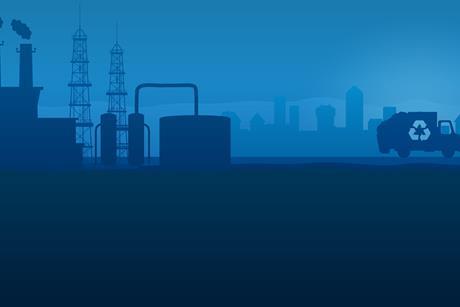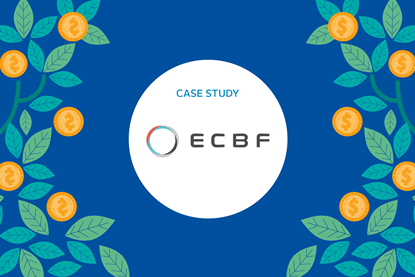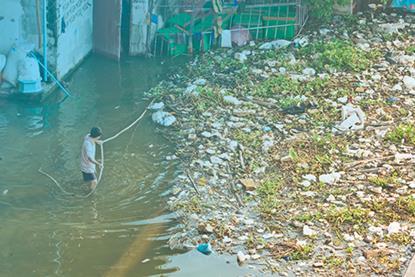Circular economy
A circular economy is a model of production and consumption that is designed to tackle global challenges such as climate change, biodiversity loss, waste and pollution.
The PRI has so far engaged investors on this topic in the context of plastics but is further exploring other value chains to tackle.
What is the circular economy?
Closing the loop: Responsible investment and the circular economy
This paper clarifies how and why investors should contribute towards the transition to a circular economy, what actions they are taking, the relevant emerging metrics and standards for investors, and how they can start to scale up their action.
Circular Economy Reference Group
The Circular Economy Reference Group convenes approximately 70 PRI signatories. The group supports investor capacity to address circular economy across relevant value chains (with a continued focus on plastics and the intention to expand to other relevant value chains over time). It does this by providing a forum for investors to share relevant developments on circular economy, learn from experts and share tools and experiences.
The group also serves to provide input into PRI’s approach to the circular economy and future guidance to support signatory action. See the Terms of Reference for more information or contact Rebecca Chapman.
The UN Global Plastics Treaty
An overview of how PRI has supported the financial sector’s engagement with the treaty negotiations, the outcomes from INC-5.2, and what’s next.
Previous work on plastic pollution
Previous work from the PRI on the circular economy focused on the plastics value chain; including the many environmental, economic and regulatory risks facing companies and the opportunities for investors to find solutions to increasing production, use, and the poor end-of-life management of plastics. PRI previously convened the Plastics Investor Working Group (29 signatories with US$5.9 trillion in assets under management) to support signatory capacity building through convenings and the development of investor guidance.
Engaging on plastic packaging
The PRI has published four guides to help investors engage with key sectors in the plastic packaging value chain including petrochemicals, containers and packaging, fast-moving consumer goods and waste management. The reports were developed with expert input from the Ellen MacArthur Foundation and PRI’s Plastics Investor Working Group.
Find out moreThe plastics landscape series
The PRI has published three reports to help investors understand why plastic is a problem, and the key sectors in the plastic value chain and associated risks and opportunities. The third report looks at the factors that are causing the plastic landscape to evolve. The reports are accompanied an interactive tool presenting data on plastic production, plastic use, plastic waste generation, plastic waste management and legislation.
The plastics landscape series: Part 1
Plastics: The challenges and possible solutions
With an increase in global production and consumption of plastics, and less than 20 percent of plastics recycled globally, plastic waste is increasing – and mismanaged.
The plastics landscape series: Part 2
Risks and opportunities along the plastics value chain
The level of global interest in plastic production, consumption and waste has soared in recent years. While much of this focus has been on the risks and impacts, it is important to recognise that the flexibility and resilience of plastic mean that products made from the material perform many crucial ...
The plastics landscape series: Part 3
The plastics landscape: regulations, policies and influencers
Rounding off a three-part series titled The plastics landscape, this report explores the various plastic-related regulations and policies at different stages of the value chain. It also looks at the types of movements that are influencing how plastic is regulated, managed and used.
Other resources
ECBF: Investing in the bioeconomy
Not all ‘bio’ is necessarily ‘sustainable’, and not all investments in the industry represent a form of responsible capital. It is critical to distinguish, measure and monitor an innovation’s true contribution to sustainability, as well as assess the ESG-related risk and opportunity.
How investors can support a circular economy for plastics: new engagement guidance
By Rebecca Chapman, Specialist, Environmental Issues, PRI, and Gerald Naber, Programme Manager, New Plastics Economy, Ellen MacArthur Foundation
How can investors help create a plastics economy that works? Event roundup
Whilst plastic is fundamental to everyday life, plastic waste poses significant reputational risks, particularly for the food, beverage and retail sectors.


